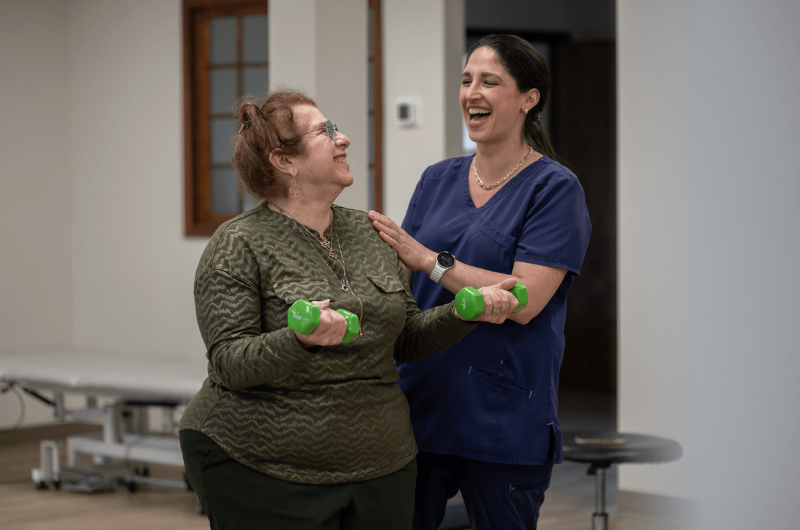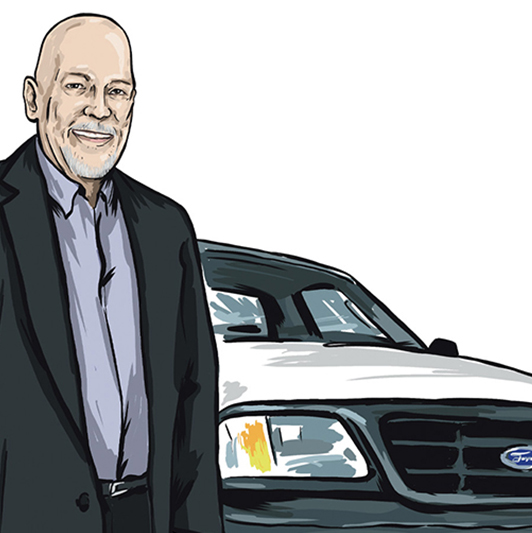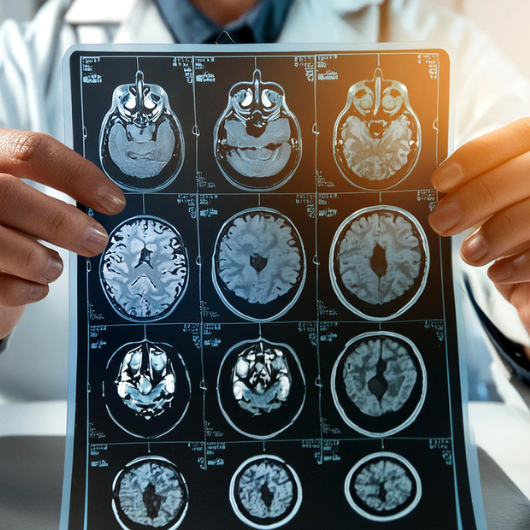Expert Decision-Making Helps Woman Survive a Stroke With Rapid Recovery

July 02, 2025
Mary Ann Brancato battled on-and-off numbness in her arms for several weeks. After doctors incorrectly attributed her symptoms to a pinched nerve in her neck, the 74-year-old Staten Island, New York, resident tried physical therapy to ease her numbness and improve strength and mobility.
On December 12, 2023, while her physical therapist was assessing her neck range of motion, Mary Ann suddenly lost the ability to speak.
“All of a sudden, I had numbness everywhere, and I lost total cognition,” she says.
Fortunately, the physical therapist quickly recognized Mary Ann was showing telltale signs of a stroke and immediately called 911.
“If she hadn’t done that, I would have died,” says Mary Ann, a retired nurse and caretaker of her son, Joe, 44, who suffered a stroke at age 38.
Life-Saving Stroke Management
After an ambulance ride to JFK University Medical Center, a neurology team assembled immediately to assess Mary Ann. Her blood pressure was very high, which is normally a concern, but neurologist Haralabos Zacharatos, D.O., made a critical decision to not lower it, which would ultimately save her life.
The source of Mary Ann’s condition was the large blood vessels that supply blood to her brain. Her left carotid artery was 90 percent blocked, and her right carotid artery was 60 percent blocked. Dr. Zacharatos wanted to keep Mary Ann’s blood pressure high so that collateral blood flow — the body’s natural way of redirecting blood to areas affected by blockages — could sustain her through the stroke.
“In her case, we did not want to lower her blood pressure,” Dr. Zacharatos says. “We wanted to allow the collateral blood supply to get blood to the affected brain.”
This approach allowed Mary Ann’s brain to continue receiving blood until her surgery. The next
day, Dr. Zacharatos surgically cleared the blockage in her left internal carotid artery by performing a minimally invasive procedure, called a carotid artery stent with pre- and post-stent angioplasty using a small filter.
In this procedure, an angioplasty is performed with a small balloon that pushes the cholesterol build-up that causes the narrowing in the blood vessel to the side, creating an improved pathway for blood to flow. He then inserted a stent, or a small tube that provides a scaffolding, to keep the artery open and maintain the improved diameter of the previously narrowed blood vessel.
On February 1, 2024, Mary Ann returned to the hospital to have a stent placed in her right internal carotid artery.
Despite the severity of her condition, Mary Ann says she began recovering right away and was happy to be able to cook and garden again so quickly.
“After the surgery, it was really nothing. There was no significant recovery period,” she says. “I still did a little bit of walking each day, and I continued to prepare meals for my partner and son.”
Since then, she has seen cardiologist Bhudev Sharma, M.D., for follow-up care.
“I owe my life to this institution,” Mary Ann says of Hackensack Meridian Health. “My entire team, they are well educated and prepared. I want to shout my story from the rooftops!”
Recipe for Long-Term Health
Dr. Zacharatos says Mary Ann’s risk for another stroke is low as long as she maintains a healthy and active lifestyle and regularly takes medication to control her cholesterol. He says that walking 8,000 to 10,000 steps a day is ideal, and not just for the cardiovascular benefits, but for her mental health and overall wellness as well.
“Walking provides benefits that we really can’t quantify because it naturally releases endorphins, which are the body’s natural substances that improve mood, reduce pain and lead to increased happiness,” he says. “There’s a lot of good evidence that says walking impacts the
whole human being in a positive way.”
When she’s not trying to count her steps, Mary Ann says she’s most likely in the kitchen cooking for friends and family.
“I’m an amazing cook, and I don’t just cook for myself,” she says. “I cook for many people.”
She’s been known to give her doctors trays of her homemade lasagna. She gave Dr. Zacharatos a gift certificate to her favorite Greek restaurant in Edison, New Jersey, where he treated his fellows to lunch.
“He didn’t even use it for himself,” she says. “Every time I see him, I want to kiss him and hug him. He truly saved my life.”
Next Steps & Resources
- Meet our source: Haralabos Zacharatos, D.O.
- Make an appointment with a neurologist near you or call 800-822-8905.
- Learn more about neurosciences at Hackensack Meridian Health.
The material provided through HealthU is intended to be used as general information only and should not replace the advice of your physician. Always consult your physician for individual care.






